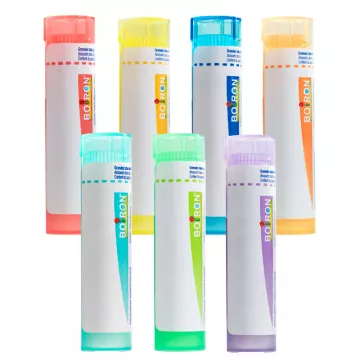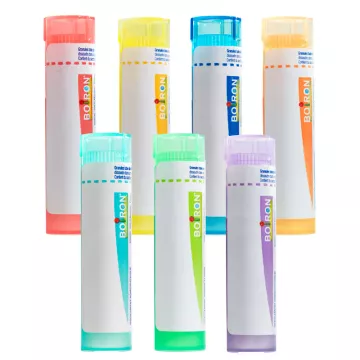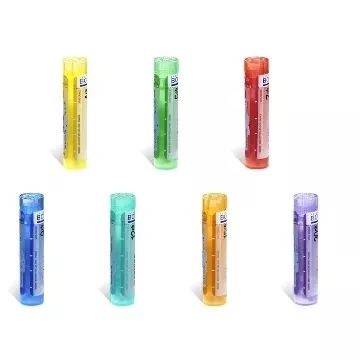





What are the main symptoms of liver disorders?
Liver disorders can manifest themselves in a variety of ways. The most common symptoms include jaundice (yellowing of the skin and eyes), chronic fatigue, abdominal pain, particularly in the upper right region below the ribs, dark urine, pale stools, loss of appetite, and swelling of the abdomen. It's crucial to consult a healthcare professional as soon as these symptoms appear.
What are the common causes of liver disorders?
Liver disorders can be caused by a variety of factors. The most common include chronic alcoholism, infection with viruses such as hepatitis A, B and C, accumulation of fat in the liver(hepatic steatosis), excessive use of certain drugs or toxins, genetic disorders and autoimmune diseases. Prevention involves a balanced diet, limiting alcohol consumption, and vaccination against hepatitis.
How are liver disorders diagnosed?
Diagnosis of liver disorders involves several steps. Doctors may recommend blood tests to check liver enzyme levels, imaging tests such as ultrasound or CT scan, and in some cases, a liver biopsy. These tests help assess the condition of the liver and identify the underlying cause of the disorder.
What treatments are available for liver disorders?
Treatment options for liver disorders vary according to the cause. For alcohol-related cases, stopping alcohol consumption is essential. Viral infections such as hepatitis may require antiviral drugs. In cases of hepatic steatosis, weight loss and dietary changes are often recommended. Treatment may also include medication to control symptoms such as itching or pain, and in severe cases, a liver transplant may be considered.
How can liver disease be prevented?
To prevent liver disorders, we recommend adopting a healthy lifestyle. This includes a balanced diet rich in fruit, vegetables and whole grains, regular physical activity, limiting alcohol consumption and avoiding toxic substances. Vaccination against hepatitis A and B is also recommended. In addition, it's important to follow medical prescriptions appropriately and avoid self-medication.
Are natural remedies effective against liver disorders?
Some natural remedies can help support liver function. Milk thistle, for example, is renowned for its liver-protecting properties. Turmeric, garlic and green tea are also known for their beneficial effects on liver health. However, it is essential to consult a healthcare professional before starting any natural treatment, to avoid drug interactions and side effects.
Does diet have an impact on liver health?
Absolutely. A healthy diet is crucial to maintaining liver health. We recommend increasing consumption of green vegetables, fruit, whole grains and lean proteins. It's also important to limit foods rich in saturated fats, refined sugar and salt. Drinking enough water and maintaining a healthy weight also play a key role in preventing liver disorders.
Can physical exercise influence liver health?
Yes, regular exercise contributes significantly to liver health. Physical activity helps reduce body fat, including fat accumulated in the liver, thereby reducing the risk of fatty liver and improving overall liver function. Experts recommend a minimum of 150 minutes of moderate physical activity per week.
What is the medical follow-up for liver disorders?
Medical follow-up for liver disorders generally involves regular consultations with a hepatologist or gastroenterologist, periodic blood tests to monitor liver function, and imaging examinations as required. This follow-up helps monitor disease progression, adjust treatment and prevent complications.
Of course, here are five additional questions to enrich the content on liver disorders:
What is the link between obesity and liver disorders?
Obesity is closely linked to the development of non-alcoholic fatty liver disease (NAFLD), a form of liver disorder. Excess body fat, particularly around the abdomen, increases the risk of inflammation and liver damage. This condition can progress to non-alcoholic steatohepatitis, cirrhosis, and even liver cancer. Weight management through a balanced diet and regular exercise is crucial to the prevention and treatment of these disorders.
Can liver disease be completely cured?
The possibility of recovery from liver disease depends on its cause and stage. Mild liver disorders, particularly those caused by lifestyle factors such as alcoholism or obesity, can often be reversed with lifestyle changes and appropriate treatment. However, more severe conditions, such as advanced cirrhosis, cannot be completely cured, although their symptoms can be managed to improve quality of life.
What role does diet play in the treatment of liver disorders?
A healthy diet plays a crucial role in the treatment of liver disorders. It is recommended to consume fiber-rich foods such as fruits, vegetables and whole grains, and to limit saturated fats and refined sugars. Foods high in antioxidants, such as berries and green vegetables, can also help protect the liver. It is important to avoid alcohol, as it can aggravate liver damage.
What are the effects of alcohol on the liver?
Alcohol can have devastating effects on the liver. Excessive and prolonged alcohol consumption leads to inflammation and swelling of the liver (alcoholic hepatitis), which can progress to fibrosis and cirrhosis. Alcohol also impairs the liver's ability to process and eliminate toxins, exacerbating the damage. Reducing or stopping alcohol consumption is essential to prevent and treat alcohol-related liver damage.
How is hepatic steatosis treated?
Treatment of hepatic steatosis mainly involves lifestyle modifications. Weight loss through a healthy diet and regular exercise is recommended. Reducing consumption of foods rich in saturated fats and sugars, and increasing intake of fiber and lean protein are also recommended. In some cases, medication may be prescribed to manage associated risk factors, such as diabetes or high cholesterol.